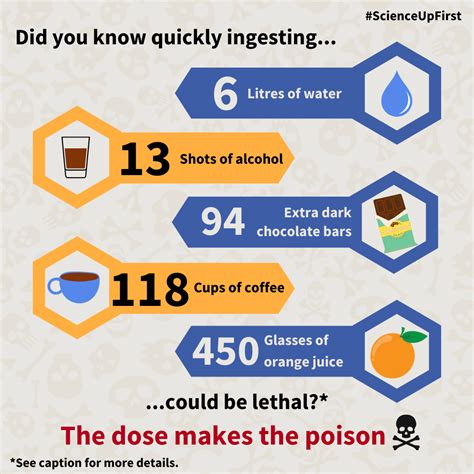
Civilians in Khan Younis are being urged by the World Food Programme (WFP) to share the limited humanitarian aid arriving in the area and to cease intercepting trucks delivering essential supplies, as the agency warns that such actions are hindering efforts to assist the growing number of displaced people.
The WFP is appealing to residents to allow for the orderly distribution of aid to ensure that vital assistance reaches those most in need, particularly amid increasing desperation and shortages of food, water, and medical supplies due to the ongoing conflict. The agency underscores the urgency of the situation, emphasizing that unhindered access and cooperation from the local population are critical to prevent further deterioration of the humanitarian crisis.
The WFP expressed concern over instances of civilians offloading trucks before aid can be properly distributed. In a statement released on Friday, the WFP said, “With desperation soaring, WFP is appealing to the people of Khan Younis to share what little food is available. Stopping trucks and taking food directly from them only hurts those who are most in need.” This plea comes as the humanitarian situation in Gaza, especially in Khan Younis, grows increasingly dire, with hundreds of thousands of people displaced and in urgent need of assistance.
The disruption of aid deliveries exacerbates the challenges faced by humanitarian organizations in reaching vulnerable populations. The WFP is working to scale up its operations and provide food and other essential items to as many people as possible, but these efforts are being hampered by security concerns, logistical constraints, and the interception of aid convoys. The agency stressed that collective responsibility and cooperation are essential to ensure that aid reaches those who need it most.
Growing Humanitarian Crisis in Khan Younis
Khan Younis, a major city in the southern Gaza Strip, has become a focal point of the ongoing conflict, leading to a massive influx of displaced people seeking refuge from the fighting in other parts of the region. This has placed immense strain on the city’s already limited resources and infrastructure. The United Nations estimates that hundreds of thousands of people have been displaced to Khan Younis, overwhelming the capacity of existing shelters and humanitarian facilities.
The WFP and other humanitarian organizations are struggling to meet the growing needs of the displaced population, who are facing severe shortages of food, water, sanitation, and medical care. Many families are living in overcrowded conditions, with limited access to basic necessities. The lack of clean water and sanitation facilities has raised concerns about the spread of diseases, particularly among children.
The disruption of essential services, including healthcare and education, has further compounded the suffering of the civilian population. Hospitals and clinics are struggling to cope with the influx of patients, and many schools have been forced to close, depriving children of education and a sense of normalcy.
Challenges to Aid Delivery
The delivery of humanitarian aid to Khan Younis and other parts of Gaza is fraught with challenges. Security concerns, including ongoing fighting and the risk of attacks on aid convoys, make it difficult for humanitarian organizations to operate safely and effectively. Logistical constraints, such as damaged roads and infrastructure, also hamper the movement of aid supplies.
The interception of aid trucks by civilians, as highlighted by the WFP, is another significant obstacle to aid delivery. While driven by desperation and a desire to secure food for their families, these actions disrupt the orderly distribution of aid and prevent it from reaching those who are most vulnerable. The WFP has called on community leaders and local authorities to help ensure that aid deliveries are protected and that aid is distributed fairly.
The limited number of border crossings open for aid deliveries further restricts the flow of humanitarian assistance into Gaza. The WFP and other humanitarian organizations have repeatedly called for increased access and the opening of additional border crossings to allow for the rapid and efficient delivery of aid supplies.
WFP’s Response Efforts
Despite the challenges, the WFP is working to scale up its operations and provide food and other essential items to as many people as possible in Khan Younis and other parts of Gaza. The agency is distributing food rations, providing hot meals, and supporting local bakeries to ensure that people have access to food. The WFP is also providing cash assistance to vulnerable families, allowing them to purchase food and other essential items from local markets.
The WFP is working with local partners and community leaders to ensure that aid is distributed fairly and efficiently. The agency is also providing logistical support to other humanitarian organizations, helping them to transport and distribute aid supplies.
In addition to providing food assistance, the WFP is also working to address other critical needs, such as water and sanitation. The agency is providing clean water to displaced people and supporting the rehabilitation of water and sanitation facilities.
International Response and Calls for Ceasefire
The humanitarian crisis in Gaza has sparked international concern and calls for a ceasefire. The United Nations, the European Union, and other international organizations have urged all parties to the conflict to respect international humanitarian law and to ensure the protection of civilians. They have also called for increased access for humanitarian aid and the opening of additional border crossings.
Many countries have pledged financial assistance to support the humanitarian response in Gaza. However, humanitarian organizations have warned that funding alone is not enough and that a political solution is needed to end the conflict and address the root causes of the crisis.
The WFP and other humanitarian organizations have reiterated their call for a ceasefire and for all parties to the conflict to engage in negotiations to find a peaceful resolution. They have emphasized that a political solution is the only way to prevent further suffering and to ensure the long-term stability of the region.
The Impact on Civilians
The ongoing conflict and the humanitarian crisis have had a devastating impact on the civilian population in Gaza, particularly in Khan Younis. Many people have lost their homes, their livelihoods, and their loved ones. The psychological toll of the conflict is also significant, with many people suffering from trauma, anxiety, and depression.
Children are particularly vulnerable in conflict situations. They are at risk of physical harm, displacement, and separation from their families. They may also experience psychological trauma and be deprived of education and other essential services.
The humanitarian crisis in Gaza has exacerbated existing inequalities and vulnerabilities. Women, children, the elderly, and people with disabilities are disproportionately affected by the conflict and the lack of access to essential services.
Future Outlook
The future outlook for Gaza remains uncertain. The ongoing conflict and the humanitarian crisis are likely to continue to have a devastating impact on the civilian population. Without a political solution, the cycle of violence and suffering is likely to continue.
The WFP and other humanitarian organizations will continue to provide assistance to the people of Gaza, but their efforts are limited by the ongoing conflict and the lack of access. A sustainable solution to the crisis requires a political settlement that addresses the root causes of the conflict and ensures the long-term stability of the region.
The international community has a responsibility to support the people of Gaza and to work towards a peaceful resolution of the conflict. This includes providing humanitarian assistance, promoting human rights, and supporting efforts to rebuild Gaza and create a more just and equitable society. The situation requires a concerted effort from all parties involved to alleviate the suffering of the civilian population and to create a future where all people in Gaza can live in peace and dignity. The WFP’s appeal underscores the urgency of collective action and the shared responsibility to ensure that aid reaches those who desperately need it, mitigating the worst effects of this ongoing crisis.
Underlying Causes of the Crisis
The current crisis in Khan Younis and the broader Gaza Strip is rooted in a complex history of conflict, political instability, and socioeconomic challenges. The Israeli-Palestinian conflict, marked by decades of territorial disputes, displacement, and violence, has had a profound impact on the region. The blockade of Gaza, imposed by Israel and Egypt in 2007 following Hamas’s takeover, has further exacerbated the humanitarian situation.
The blockade has severely restricted the movement of people and goods, leading to shortages of essential supplies, including food, medicine, and construction materials. It has also crippled the Gazan economy, resulting in high levels of unemployment and poverty. The lack of economic opportunities and the sense of hopelessness have contributed to the ongoing cycle of violence and instability.
The political divisions between Hamas, which controls Gaza, and the Palestinian Authority, which governs the West Bank, have further complicated the situation. The lack of a unified Palestinian government has hindered efforts to address the underlying causes of the crisis and to negotiate a lasting peace agreement with Israel.
Long-Term Consequences
The long-term consequences of the ongoing conflict and the humanitarian crisis in Gaza are significant. The destruction of infrastructure, including homes, schools, and hospitals, will take years to rebuild. The psychological trauma experienced by the civilian population, particularly children, will have lasting effects.
The economic devastation caused by the conflict will further impoverish the Gazan population and make it even more difficult for them to recover. The lack of access to education and healthcare will have long-term consequences for the development of the region.
The ongoing conflict and the humanitarian crisis also pose a threat to regional stability. The sense of injustice and hopelessness among the Palestinian population can fuel further violence and extremism. A lasting peace agreement is essential to address the underlying causes of the conflict and to create a future where all people in the region can live in peace and security.
The Role of International Law
International humanitarian law plays a crucial role in protecting civilians during armed conflict. It sets out rules and principles that aim to minimize the suffering caused by war and to ensure that civilians are not targeted. These principles include the obligation to distinguish between civilians and combatants, the prohibition of attacks on civilians and civilian objects, and the obligation to take all feasible precautions to avoid or minimize civilian casualties.
International human rights law also applies during armed conflict. It guarantees fundamental rights and freedoms to all individuals, including the right to life, the right to freedom from torture and ill-treatment, and the right to a fair trial. These rights must be respected at all times, even in situations of armed conflict.
The WFP and other humanitarian organizations operate in accordance with international humanitarian law and international human rights law. They are committed to providing assistance to all people in need, regardless of their political affiliation or other status. They also advocate for the protection of civilians and for respect for international law.
Rebuilding Gaza: A Daunting Task
Rebuilding Gaza after years of conflict and destruction is a daunting task. It requires a comprehensive and coordinated effort from the international community, including financial assistance, technical expertise, and political support.
The first step is to address the immediate humanitarian needs of the population, including providing food, water, shelter, and medical care. This requires ensuring that humanitarian organizations have unhindered access to Gaza and that aid supplies can be delivered safely and efficiently.
The next step is to rebuild the damaged infrastructure, including homes, schools, hospitals, and power plants. This requires significant financial investment and technical expertise. It also requires addressing the underlying causes of the conflict and creating a more stable and secure environment.
Rebuilding the Gazan economy is also essential. This requires lifting the blockade and allowing for the free movement of people and goods. It also requires creating economic opportunities and promoting sustainable development.
Finally, addressing the psychological trauma experienced by the civilian population is crucial. This requires providing mental health services and creating a supportive environment where people can heal and recover.
The Need for a Comprehensive Approach
Addressing the crisis in Gaza requires a comprehensive approach that addresses the immediate humanitarian needs, rebuilds the damaged infrastructure, revitalizes the Gazan economy, and addresses the underlying causes of the conflict. This requires a concerted effort from the international community, including financial assistance, technical expertise, and political support.
It also requires a commitment from all parties to the conflict to respect international humanitarian law and international human rights law. This includes protecting civilians, ensuring access for humanitarian aid, and working towards a peaceful resolution of the conflict.
Only through a comprehensive approach can the cycle of violence and suffering in Gaza be broken and a future where all people can live in peace and dignity be created. The WFP’s appeal is a reminder of the urgent need for action and the shared responsibility to alleviate the suffering of the civilian population.
FAQ: Humanitarian Crisis in Khan Younis
1. What is the main issue highlighted by the WFP in Khan Younis?
The WFP is urging civilians in Khan Younis to share the limited humanitarian aid and to stop intercepting trucks delivering essential supplies. The agency warns that these actions hinder efforts to assist the growing number of displaced people in need.
2. Why are civilians intercepting aid trucks in Khan Younis?
Driven by desperation and severe shortages of food, water, and other essential supplies, civilians are intercepting aid trucks in an attempt to secure resources for their families. This is happening because of the overwhelmed capacity to provide assistance due to the mass displacement.
3. What challenges are humanitarian organizations facing in delivering aid to Khan Younis?
Humanitarian organizations are facing numerous challenges, including security concerns due to ongoing conflict, logistical constraints such as damaged infrastructure, the interception of aid trucks by civilians, and limited access through border crossings.
4. What is the WFP doing to address the humanitarian crisis in Khan Younis?
The WFP is scaling up its operations to provide food rations, hot meals, and cash assistance to vulnerable families. The agency is also working with local partners to ensure fair distribution of aid and providing logistical support to other humanitarian organizations. They are working on providing clean water and rehabilitating water and sanitation facilities.
5. What are the long-term solutions needed to address the crisis in Gaza, including Khan Younis?
Long-term solutions require a comprehensive approach, including a political settlement that addresses the root causes of the conflict, lifting the blockade to allow the free movement of people and goods, rebuilding damaged infrastructure, revitalizing the Gazan economy, and addressing the psychological trauma experienced by the civilian population. A concerted effort from the international community is essential for sustainable peace and stability.
Broader Context: The Socio-Political Landscape of Gaza
Understanding the current humanitarian crisis necessitates a deeper dive into the socio-political context of the Gaza Strip. For decades, Gaza has been at the epicenter of the Israeli-Palestinian conflict, enduring multiple wars, economic hardship, and political instability. This prolonged state of crisis has created a deeply vulnerable society, heavily reliant on international aid and characterized by limited opportunities for its residents.
The political landscape is dominated by Hamas, which has governed Gaza since 2007. The Hamas-led government is not recognized by many Western nations, including the United States and the European Union, leading to further isolation and economic sanctions. This has contributed to the severe economic downturn in Gaza, with unemployment rates soaring and widespread poverty becoming entrenched.
The blockade imposed by Israel and Egypt has had a devastating impact on the Gazan economy and the lives of its residents. The restrictions on the movement of people and goods have crippled industries, limited access to essential services, and created a sense of hopelessness among the population. The blockade has also made it difficult for humanitarian organizations to operate effectively, further exacerbating the crisis.
The socio-political dynamics within Gaza are also complex. The population is diverse, with varying levels of support for Hamas and differing perspectives on the Israeli-Palestinian conflict. The lack of political unity among Palestinians has further complicated efforts to address the underlying causes of the crisis and to negotiate a lasting peace agreement with Israel.
The Role of External Actors
The humanitarian crisis in Gaza is not solely a local issue; it is deeply intertwined with the actions and policies of external actors, including Israel, Egypt, the United States, the European Union, and other international organizations. These actors play a significant role in shaping the political and economic landscape of Gaza, and their decisions have a direct impact on the lives of its residents.
Israel, as the occupying power, has a legal and moral obligation to protect the civilian population in Gaza and to ensure that their basic needs are met. However, Israel’s policies, including the blockade and military operations, have been widely criticized for violating international humanitarian law and contributing to the humanitarian crisis.
Egypt, which shares a border with Gaza, also plays a crucial role in controlling the movement of people and goods. The Rafah border crossing, which is the only gateway to the outside world for many Gazans, is often closed or heavily restricted, further isolating the population.
The United States and the European Union are major donors to Gaza, providing financial assistance to support humanitarian programs and development projects. However, their support is often conditional on adherence to certain political conditions, which can complicate efforts to address the underlying causes of the crisis.
Other international organizations, such as the United Nations, the World Bank, and the International Committee of the Red Cross, also play a vital role in providing humanitarian assistance and advocating for the rights of the Palestinian people.
The Psychological Impact of Conflict and Displacement
The ongoing conflict and the humanitarian crisis in Gaza have had a profound psychological impact on the civilian population, particularly children. Exposure to violence, displacement, and loss can lead to a range of mental health problems, including trauma, anxiety, depression, and post-traumatic stress disorder (PTSD).
Children are particularly vulnerable to the psychological effects of conflict. They may witness violence, lose loved ones, and experience separation from their families. They may also be deprived of education, healthcare, and other essential services, which can further exacerbate their psychological distress.
Adults are also affected by the psychological impact of conflict. They may experience feelings of hopelessness, despair, and anger. They may also struggle to cope with the loss of their homes, their livelihoods, and their sense of security.
Addressing the psychological needs of the civilian population is crucial for their long-term recovery and well-being. This requires providing mental health services, such as counseling and therapy, and creating a supportive environment where people can heal and recover. It also requires addressing the underlying causes of the conflict and creating a more just and equitable society.
The Role of Media and Public Awareness
The media plays a crucial role in raising public awareness about the humanitarian crisis in Gaza and in holding those responsible accountable. By reporting on the realities of life in Gaza and highlighting the suffering of the civilian population, the media can help to mobilize public support for humanitarian action and to pressure governments and international organizations to take action.
However, media coverage of the Israeli-Palestinian conflict is often biased and politicized. This can make it difficult for the public to get an accurate and balanced understanding of the situation in Gaza. It is important for the media to adhere to journalistic ethics and to provide fair and objective coverage of the conflict.
Public awareness campaigns can also be effective in raising awareness about the humanitarian crisis in Gaza and in mobilizing support for humanitarian action. These campaigns can use a variety of methods, including social media, public events, and educational materials, to inform the public about the situation in Gaza and to encourage them to take action.
Lessons Learned and Future Directions
The ongoing humanitarian crisis in Gaza provides valuable lessons for humanitarian actors and policymakers. It highlights the importance of addressing the underlying causes of conflict, protecting civilians, ensuring access for humanitarian aid, and promoting sustainable development.
It also highlights the need for a more coordinated and effective humanitarian response. This requires strengthening partnerships between humanitarian organizations, governments, and local communities. It also requires investing in capacity building and ensuring that humanitarian aid is delivered in a timely and efficient manner.
Looking ahead, there is a need for a more comprehensive and sustainable approach to addressing the crisis in Gaza. This requires not only providing humanitarian assistance but also addressing the underlying causes of the conflict and creating a more just and equitable society. This requires a concerted effort from the international community, including financial assistance, technical expertise, and political support.
The WFP’s appeal underscores the urgency of the situation and the shared responsibility to alleviate the suffering of the civilian population. By working together, humanitarian actors, policymakers, and the international community can create a future where all people in Gaza can live in peace and dignity. The situation remains critical, and concerted action is needed to prevent further deterioration and to pave the way for a lasting solution.









